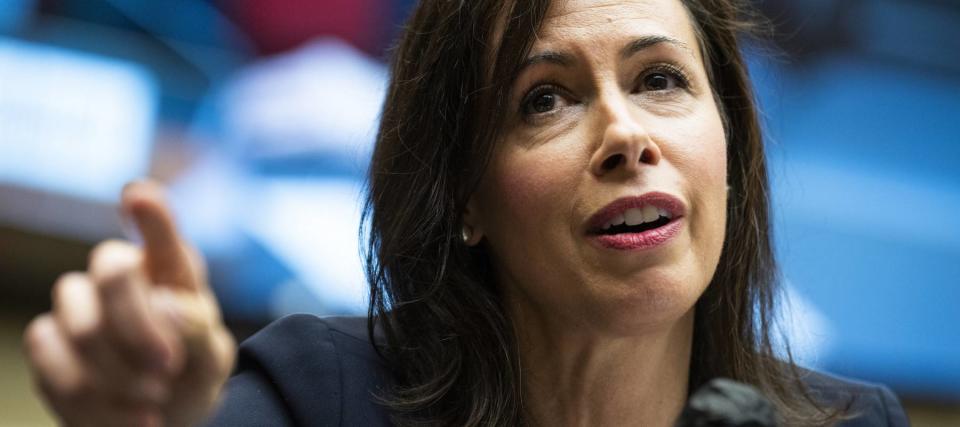FCC pulls the plug on its affordable internet program — throwing 23 million households into financial distress

Cynthia George, a 71-year-old Florida retiree, uses the internet to connect with her grandchildren on video calls, keep up with the news and search for grocery deals to stretch her food stamps further.
“My grandkids, they make fun of me,” George told CNN earlier this year. “They say I’m cheap. I go, ‘No, Grandma’s thrifty.’”
Don't miss
Cost-of-living in America is still out of control — use these 3 'real assets' to protect your wealth today, no matter what the US Fed does or says
Car insurance rates have spiked in the US to a stunning $2,150/year — but you can be smarter than that. Here's how you can save yourself as much as $820 annually in minutes (it's 100% free)
These 5 magic money moves will boost you up America's net worth ladder in 2024 — and you can complete each step within minutes. Here's how
But now that the Federal Communications Commission (FCC) has pulled the plug on its Affordable Connectivity Program (ACP), which provided a discount on internet services to low-income households, George is worried she may have to sacrifice her internet connection in order to feed herself.
“I don’t have any choice; I have to account for every penny,” she said. “There’s no place else I would be able to take it from.”
Low-income Americans face decision on connectivity
George is one of millions of Americans who could be forced into a difficult financial decision just to afford their internet bill after the ACP ended June 1 due to lack of funding.
The program provided eligible households a monthly credit put toward their internet bills worth up to $30 and as much as $75 for those on tribal lands.
Over 23 million households were enrolled.
“The strong demand for the ACP is definitive evidence that too many working families have been trapped on the wrong side of the digital divide because they struggle to pay for service,” FCC chairwoman Jessica Rosenworcel said in a statement May 31.
She noted that a stunning 68% of households subscribed to the program had inconsistent or zero connectivity before it launched. Rosenworcel was hopeful the ACP will one day be revived, adding the program “is not a nice to have, it is a necessity.”
For now, households that benefited from the program might have to decide where to cut back, whether it’s on their groceries or auto expenses — or forego internet service altogether.
Read more: Thanks to Jeff Bezos, you can now use $100 to cash in on prime real estate — without the headache of being a landlord. Here's how
Those who signed up for the ACP tended to skew older, according to the Universal Service Administrative Company, which reported 10.6 million subscribers were aged 50 or older, representing nearly half of households enrolled.
About 20% of subscribers were seniors 65-plus — consistent with what Rosenworcel explained, that “many ACP recipients are seniors on fixed incomes struggling to pay competing bills and make ends meet.”
In addition, a survey from market research firm Benenson Strategy Group revealed 65% of ACP participants feared an end to the program would result in losing their job or their household’s primary source of income, while three-quarters were concerned they’d lose access to important health-care services, such as online appointments or prescription medicine refills. Another 81% of ACP parents were worried about their children falling behind in school.
Around 95% of program participants surveyed said they would struggle with costs if the program ended, with the most commonly cited concern being the ability to afford groceries (35%).
A lack of funding and 'political gameplay'
The Biden administration previously pledged a $42 billion investment to get Americans across the country high-speed internet access by 2030 and requested $6 billion in additional funding to keep the ACP running — but there’s been no action taken by Congress to extend funding for the program despite months of warning.
“Because of political gameplay, about 60 million Americans will have to make hard choices between paying for the internet or paying for food, rent and other utilities, widening the digital divide in this country,” Gigi Sohn, a former top FCC official, told CNN.
“It’s embarrassing that a popular, bipartisan program with support from nearly half of Congress will end because of politics, not policy.”
The White House released a list of internet service providers offering their current ACP subscribers and other qualifying households a high-speed internet plan for up to $30 a month, with no fees and data caps, until the end of 2024. But these providers, collectively, cover only up to 10 million ACP households.
Some other options exist, including the use of free Wi-Fi at fast-food restaurants, libraries and other public spaces, or using cell phone data if it’s available and affordable where you live.
The FCC also offers the Lifeline program, which provides discounts up to $9.25 a month for internet service for eligible low-income households and up to $34.25 a month for qualifying subscribers on tribal lands. That said, this is still far less than what ACP subscribers have been accustomed to receiving since the program was established in 2021.
What to read next
Car insurance premiums in America are through the roof — and only getting worse. But 5 minutes could have you paying as little as $29/month
‘Baby boomers bust': Robert Kiyosaki warns that older Americans will get crushed in the 'biggest bubble in history' — 3 shockproof assets for instant insurance now
This little-known investment strategy can save you thousands on taxes
This article provides information only and should not be construed as advice. It is provided without warranty of any kind.

 Yahoo Finance
Yahoo Finance 